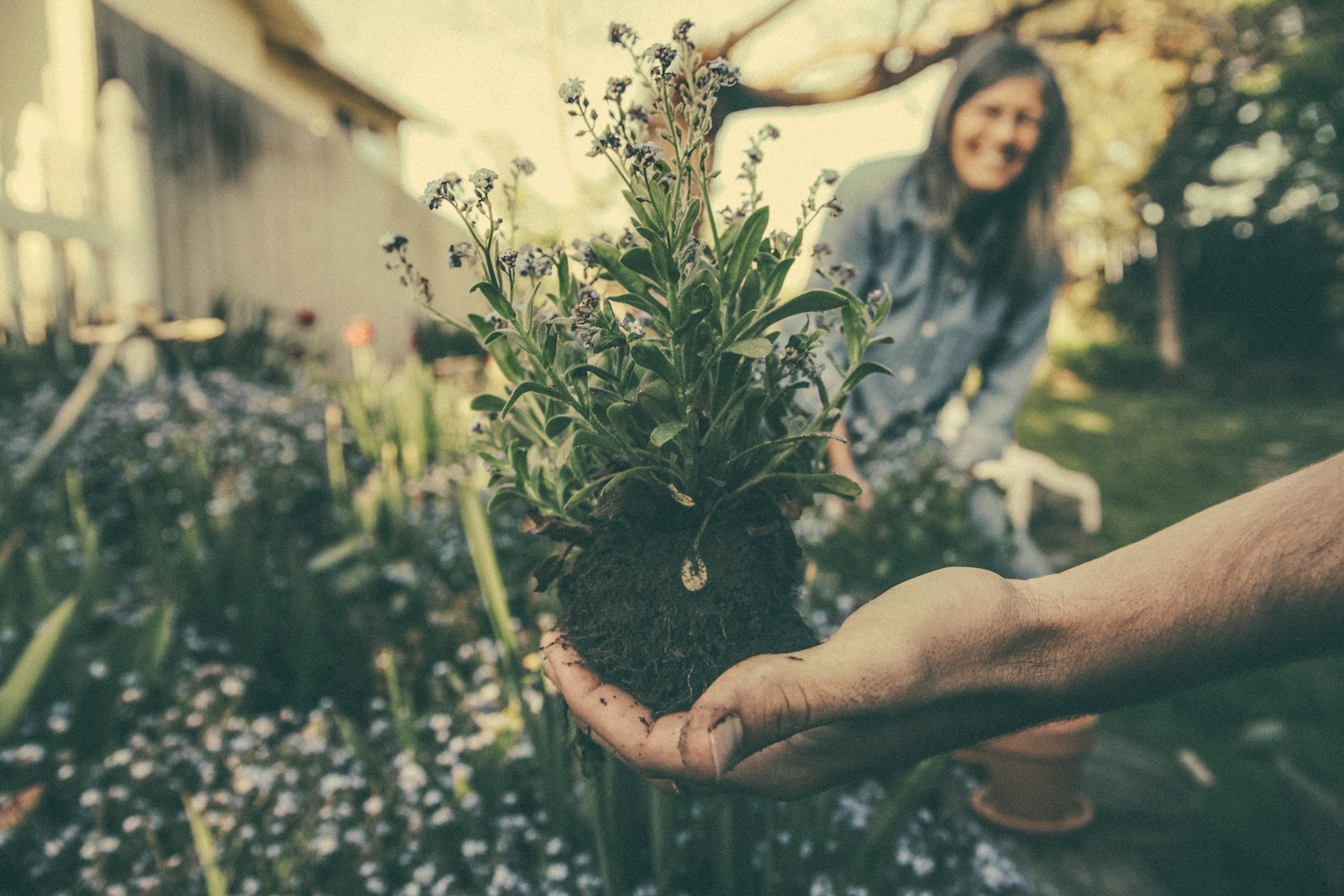Gardening is more than just a hobby; it’s a therapeutic and fulfilling activity that provides numerous benefits for both physical and mental well-being. Engaging with nature through planting, nurturing, and harvesting plants offers a way to slow down, connect with the earth, and reap rewards that go beyond fresh produce or beautiful flowers. Gardening enhances physical health, reduces stress, improves mood, and fosters a sense of purpose. This article will explore 18 incredible benefits of gardening for general and mental health, illustrating why spending time in the garden can be one of the most impactful ways to cultivate a healthier, more balanced life.
1. Provides Physical Exercise
Gardening is a form of moderate physical exercise that involves various types of movement, from digging and planting to lifting and carrying. These activities engage multiple muscle groups, including the legs, arms, core, and back, providing a full-body workout that promotes physical strength, flexibility, and endurance. Gardening helps burn calories, enhances mobility, and improves overall fitness levels without the intensity of high-impact sports or gym workouts.
For individuals who may not enjoy structured exercise routines, gardening offers a productive alternative that keeps the body active. Over time, the physical demands of gardening can improve cardiovascular health, increase muscle tone, and help with weight management, making it an ideal activity for people of all ages and fitness levels.
2. Reduces Stress and Anxiety
One of the most profound benefits of gardening is its ability to reduce stress and anxiety. Spending time outdoors, surrounded by plants and natural elements, helps calm the mind and creates a sense of peace. Studies have shown that gardening can lower cortisol levels, the body’s primary stress hormone, which in turn reduces anxiety and promotes relaxation. The physical activity involved in gardening also releases endorphins, which are natural mood boosters.
Gardening provides a chance to focus on the present moment, which is a form of mindfulness that helps alleviate anxiety. By immersing oneself in the sensory experience of gardening—feeling the soil, smelling the plants, hearing the rustle of leaves—individuals can find relief from stress and anxiety, making gardening a powerful tool for mental wellness.
3. Enhances Mood and Emotional Well-Being
Gardening has a positive impact on mood and emotional well-being. Being surrounded by greenery and engaging in hands-on work allows individuals to connect with nature, which has been shown to improve mood and decrease feelings of sadness or frustration. Gardening creates a sense of purpose and accomplishment, as individuals witness the growth of plants that they have cared for and nurtured.
The act of nurturing plants can also promote feelings of empathy and compassion, fostering a deeper connection to the natural world. This connection helps individuals feel more grounded and balanced emotionally. Gardening provides an outlet for creative expression, which can further enhance emotional well-being and foster a positive mindset.
4. Boosts Vitamin D Intake
Exposure to sunlight while gardening helps the body produce vitamin D, an essential nutrient for bone health, immune function, and mood regulation. Vitamin D deficiency has been linked to a variety of health issues, including depression, osteoporosis, and weakened immunity. Spending time in the sun while gardening provides a natural way to absorb this critical vitamin.
Moderate sun exposure, particularly in the early morning or late afternoon, can help the body produce adequate vitamin D levels without the risks of prolonged sun exposure. Regular gardening sessions outdoors help maintain a healthy balance of vitamin D, supporting both physical and mental health.
5. Improves Cognitive Function
Gardening stimulates the brain and helps improve cognitive function, particularly in older adults. Engaging in tasks that require planning, problem-solving, and decision-making, such as organizing a garden layout or selecting plants, keeps the mind active and alert. Studies have shown that regular gardening can reduce the risk of cognitive decline and improve memory retention.
For individuals dealing with dementia or cognitive impairments, gardening can serve as a therapeutic activity that helps maintain mental agility. The sensory stimulation from gardening, along with its cognitive challenges, promotes neuroplasticity, keeping the brain healthy and engaged as people age.
6. Encourages Healthy Eating Habits
Growing fruits, vegetables, and herbs in a garden encourages healthy eating habits by providing fresh, homegrown produce. People who cultivate their own vegetables are more likely to incorporate them into their meals, leading to a diet rich in vitamins, minerals, and antioxidants. Gardening allows individuals to enjoy the fruits of their labor, which fosters a sense of pride and satisfaction in making healthy food choices.
Gardening also promotes a better understanding of where food comes from, encouraging individuals to choose fresh, whole foods over processed options. By incorporating homegrown produce into their diet, individuals can improve nutrition, reduce exposure to pesticides, and support their overall health through a diet that is naturally wholesome and nourishing.
7. Promotes Better Sleep
Engaging in physical activity, reducing stress, and spending time outdoors all contribute to better sleep quality, and gardening provides each of these benefits. Regular gardening promotes physical fatigue in a healthy way, helping the body prepare for restful sleep. The calming effects of nature and the stress relief provided by gardening create a mental environment that supports relaxation and sleep readiness.
The sense of accomplishment and satisfaction from gardening can also lead to a more relaxed state of mind, making it easier to fall asleep and stay asleep. By promoting physical tiredness and mental relaxation, gardening supports more consistent and rejuvenating sleep, which benefits overall health and well-being.
8. Fosters a Sense of Purpose and Accomplishment
Gardening provides a sense of purpose by allowing individuals to nurture and care for living things. Watching plants grow, thrive, and eventually bear fruit or flowers gives gardeners a sense of accomplishment and pride. This feeling of purpose is particularly beneficial for those who may feel disconnected or lack direction, as it gives them a meaningful goal to work toward.
The cyclical nature of gardening, from planting seeds to harvesting, reinforces the value of patience, perseverance, and dedication. This process fosters resilience and self-worth, as individuals see the results of their hard work and care. The sense of purpose gained from gardening can boost confidence and provide motivation in other areas of life as well.
9. Supports Mindfulness and Present-Moment Awareness
Gardening encourages mindfulness by immersing individuals in the present moment and creating a space for mental clarity. The repetitive, focused nature of gardening tasks, such as weeding, planting, and watering, allows individuals to tune out distractions and focus solely on the task at hand. This practice of mindfulness can help reduce stress, improve focus, and promote mental balance.
By practicing mindfulness through gardening, individuals can experience a greater sense of inner peace and relaxation. Engaging with nature and being present in the garden encourages a more mindful approach to life, helping people cultivate calm and reduce stress through intentional, focused action.
10. Strengthens Immune System
Exposure to soil and natural environments through gardening can strengthen the immune system. Soil contains beneficial microorganisms, including bacteria like Mycobacterium vaccae, which can enhance immune function and reduce inflammation. Working with soil and spending time in the garden exposes the body to these microorganisms, supporting immune health and resilience.
Gardening also encourages regular exposure to fresh air and sunlight, both of which contribute to a stronger immune response. By promoting a balanced immune system, gardening helps the body defend against infections, allergies, and autoimmune issues, making it a valuable activity for boosting overall health.
11. Enhances Respiratory Health
Gardening in natural outdoor environments supports respiratory health by promoting regular exposure to fresh air and helping clear the lungs. Spending time outside in green spaces can help filter pollutants and allergens, leading to improved air quality and easier breathing. The movement involved in gardening also encourages deeper, more effective breathing, which supports lung function.
Gardening can be especially beneficial for individuals with respiratory conditions, such as asthma, as the fresh air and natural environment provide a healthier breathing environment than indoors. By enhancing lung function and promoting better air quality, gardening contributes to long-term respiratory health.
12. Strengthens Hand Muscles and Dexterity
The physical tasks involved in gardening, such as planting, digging, and pruning, help strengthen hand muscles and improve dexterity. These activities require precise hand movements and finger coordination, making gardening an excellent way to maintain fine motor skills. For individuals with arthritis or joint pain, gardening can be a form of therapy that promotes hand strength and flexibility.
Regular gardening tasks help improve grip strength, which is essential for daily activities, from opening jars to writing. For older adults, maintaining hand dexterity is particularly important, as it supports independence and mobility in daily life.
13. Connects People with Nature
Gardening provides a meaningful way to connect with nature by engaging with the soil, plants, and ecosystem. This connection fosters a sense of appreciation and respect for the environment, encouraging individuals to take an active role in caring for the earth. Research shows that spending time in nature can reduce feelings of loneliness, improve mood, and create a sense of belonging.
Gardening allows individuals to witness the changing seasons, observe plant growth cycles, and interact with local wildlife, such as birds, insects, and pollinators. This connection to nature enhances mental well-being and provides a sense of perspective, reminding individuals of their place within the larger ecosystem.
14. Promotes Social Interaction and Community Building
Gardening can be a social activity that brings people together, whether through community gardens, gardening clubs, or shared projects. Participating in group gardening activities fosters social interaction, encourages teamwork, and creates a sense of community. Social gardening promotes feelings of inclusion, empathy, and shared purpose, which are essential for mental well-being.
For individuals who may feel isolated, such as older adults or those living alone, gardening offers an opportunity to connect with others and develop meaningful relationships. Working alongside others in the garden builds trust, enhances social skills, and strengthens community ties, creating a support network for individuals of all backgrounds.
15. Reduces Symptoms of Depression
Gardening has been shown to reduce symptoms of depression by promoting mood-enhancing activities and providing a sense of purpose. The combination of physical activity, exposure to sunlight, and connection with nature helps lift mood and counteract feelings of sadness. Engaging in creative, fulfilling work in the garden allows individuals to focus on positive, productive tasks that give them a sense of hope and accomplishment.
Gardening fosters a routine, which is essential for individuals dealing with depression, as it provides structure and motivation. By engaging in regular gardening, people experiencing depression can find relief, build resilience, and support their mental health in a natural, non-invasive way.
16. Increases Longevity and Quality of Life
Gardening has been associated with increased longevity and improved quality of life. The physical activity, stress reduction, and emotional fulfillment provided by gardening contribute to a healthier, happier lifestyle. Studies have found that individuals who garden regularly tend to live longer and experience fewer chronic health issues compared to those who are less active.
The combination of physical exercise, mental engagement, and connection to nature helps people lead healthier, more fulfilling lives. By enhancing both physical and mental health, gardening provides a holistic approach to wellness that promotes a higher quality of life at every age.
17. Teaches Patience and Responsibility
Gardening teaches valuable life skills such as patience and responsibility. Plants require time to grow, and gardeners must tend to their needs over days, weeks, and even months. This process encourages patience, as individuals learn to wait and observe the gradual growth and changes in their garden. Gardening also teaches responsibility, as plants need regular care, including watering, weeding, and pruning.
For children and young adults, gardening offers lessons in accountability and the rewards of nurturing living things. The patience and responsibility developed through gardening are applicable to various areas of life, fostering character growth and discipline.
18. Encourages Eco-Friendly Living
Gardening promotes an eco-friendly lifestyle by encouraging individuals to make sustainable choices, such as composting, recycling, and conserving water. Many gardeners also choose to use organic methods, avoiding synthetic pesticides and fertilizers, which supports healthier soil and reduces environmental impact. Growing one’s own food reduces reliance on commercial agriculture, which decreases food miles and carbon footprint.
Gardening fosters a sense of environmental responsibility, encouraging individuals to care for their surroundings and adopt sustainable practices. This eco-conscious approach benefits both the individual and the planet, supporting a lifestyle that aligns with environmental conservation and wellness.
Gardening offers a multitude of benefits that enhance both general and mental health, from physical fitness and immune support to stress reduction and improved mood. By engaging in this fulfilling and creative activity, individuals can enjoy the rewards of fresh produce, increased well-being, and a stronger connection to nature. Gardening provides an avenue for personal growth, environmental responsibility, and holistic wellness, making it a valuable practice for people of all ages. Embracing the joys of gardening can lead to a healthier, more balanced life, promoting wellness for the mind, body, and soul.




